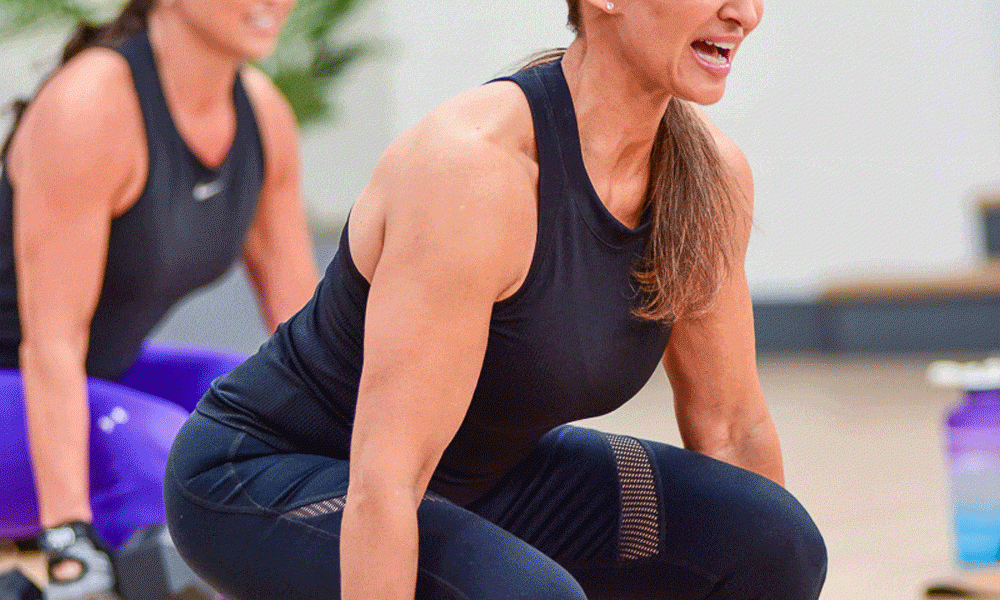One reason you might work out is to build a well-defined upper body. One goal might be to get firm arms that look fantastic in a tank top! While a strong upper body may be visually appealing, don’t neglect your lower body. The often-repeated advice of “Don’t skip leg day” holds more truth than you might think. Neglecting leg workouts can have consequences that go beyond aesthetics. Weak legs and lower body strength could impact your health.
The Aesthetic and Athletic Significance
Why should you balance upper-body strength training with lower body? First, the aesthetics of leg workouts. Well-developed leg muscles are a part of a balanced physique. Ignoring leg day could leave you with an unbalanced look. Who wants firm, strong arms, and weak, spindly legs?
Beyond aesthetics, leg strength, and power play a vital role in sports performance. Sprint speed, for instance, is correlated with leg strength and power. Powerful legs will also improve your vertical jump, which is important if you play basketball, volleyball, or any other sport where jumping is required. Regardless of your athletic pursuits, strong legs give you a competitive edge.
Leg Strength and Health
The leading cause of death in Western nations is cardiovascular disease, a term that includes heart attacks and strokes. Lifestyle plays a key role in who develops cardiovascular disease and one habit that lowers the risk is regular exercise. Interestingly, recent research explores the fascinating connection between leg strength and cardiac health, shedding light on this intriguing relationship.
A study presented at the 2023 Congress of the European Society of Cardiology examined 932 patients who had experienced a heart attack but had not developed heart failure during their hospital stay. The findings revealed that individuals with stronger quadriceps had a significantly reduced risk of developing heart failure, even after accounting for various factors such as age, sex, and body mass index, highlighting the potential of leg strength in safeguarding heart health.
Even after adjusting for various factors like age, sex, body mass index, and other health conditions, the researchers found that high quadriceps strength was associated with a 41% lower risk of heart failure. Additionally, for every 5% increase in quadriceps strength relative to body weight, the likelihood of heart failure decreased by 11%.
The Simplicity of Measuring Leg Strength
Along with measuring body weight and waist size, maybe it’s time to measure quadriceps strength too, as a marker for heart health. It’s something most doctor’s offices could easily do with the help of a handheld dynamometer. Nevertheless, they should be encouraging all clients to strength train. A strong lower body helps people stay functional. Plus, strength training and high-impact exercise involving the lower body help preserve bone mass and reduce the risk of fractures related to falls.
Other Benefits of Building Lower Body Strength
Beyond heart health, there are some other reasons to work your lower body against resistance:
Improvements in Functional Fitness: Strong legs are the foundation of daily activities. From standing up and walking to carrying groceries or climbing stairs, leg strength plays a pivotal role. When you invest in leg strength training, you’ll notice everyday tasks become easier and less taxing on your body.
Better Athletic Performance: Whether you’re an athlete or simply enjoy sports and recreational activities, strong legs are your secret weapon. Leg strength provides better stability, agility, and power, making you more competitive in your chosen sport or activity.
Improvements in Balance and Posture: Strong leg muscles contribute significantly to your balance and posture. This not only reduces the risk of falls and injuries but also builds a more confident and upright stance in your daily life. In other words, you have better posture!
Weight Management: Leg workouts engage large muscle groups, which means they burn a significant amount of calories. Incorporating leg strength training into your fitness routine can help with weight management and fat loss, as it modestly boosts your metabolism even when you’re not exercising.
Joint Health: Strong leg muscles act as a protective cushion for your joints. By maintaining muscle mass and strength, you can reduce the risk of joint-related issues like arthritis and minimize discomfort if you already have such conditions.
Enhanced Cardiovascular Health: Leg exercises, especially compound movements like squats and lunges, get your heart pumping. This boosts cardiovascular health by increasing circulation and improving heart function.
Boosted Mental Health: Regular leg strength training releases endorphins, the body’s natural mood boosters. This can help alleviate stress, anxiety, and depression, promoting a positive mental outlook.
Injury Prevention: Strong legs provide stability to the knee, hip, and ankle joints, which can help prevent injuries during physical activities or even day-to-day movements.
Strategies for Building Leg Strength
Building leg strength involves two approaches: adding muscle mass and building strength. Both goals require working your muscles against resistance and being consistent with your training.
Effective Exercises for Leg Strength
To target your quadriceps and improve leg strength, focus on key exercises:
- Deadlifts: Incorporate variations such as stiff leg deadlifts, single leg deadlifts, sumo deadlifts, and trap bar deadlifts.
- Squats: Explore variations like front squats, split squats, goblet squats, zercher squats, and leg presses. Introducing squat variations will help you avoid strength-training plateaus.
- Specific Quadriceps Exercises: Use resistance bands for resisted knee extensions. Reverse Nordics are also effective for quadriceps development.
- Lunges and Step-Ups: These exercises are versatile and can be easily integrated into your routine.
- Squat Jumps and Platform Jumps: These exercises help build power in your lower body.
Remember, there is no one-size-fits-all approach to building leg strength. The best exercise for you is the one you are most likely to stick with consistently.
Conclusion
Don’t underestimate the significance of leg day in your fitness routine. It’s not just about aesthetics. Strong legs are important for health and well-being. Building leg strength can be a powerful step towards protecting your heart and ensuring a healthier, more active future.
References:
- Heart Attack Patients With Strong Legs Have Better Prognosis. WorldHealth. Published 2023. Accessed September 13, 2023. https://www.worldhealth.net/news/heart-attack-patients-strong-legs-have-better-prognosis/
- Thomas MH, Burns SP. Increasing Lean Mass and Strength: A Comparison of High Frequency Strength Training to Lower Frequency Strength Training. Int J Exerc Sci. 2016 Apr 1;9(2):159-167. PMID: 27182422; PMCID: PMC4836564.
- “Strength training: Get stronger, leaner, healthier – Mayo Clinic.” 29 Apr. 2023, https://www.mayoclinic.org/healthy-lifestyle/fitness/in-depth/strength-training/art-20046670.
- Westcott WL. Resistance training is medicine: effects of strength training on health. Curr Sports Med Rep. 2012 Jul-Aug;11(4):209-16. doi: 10.1249/JSR.0b013e31825dabb8. PMID: 22777332.
Related Articles By Cathe:
5 Reasons You Need Single-leg Strength Training
Why You Should Do Single-Leg Squats
7 Benefits of Unilateral Training
5 Ways to Get More Benefits from Bodyweight Squats
Front Squats vs. Back Squats: Does One Have an Advantage Over the Other?
Are Ankle and Hip Mobility Issues Making It Harder for You to Squat?
Are Squats a Good Exercise for Your Hamstrings?
How Squat Depth Impacts the Muscles You Work







